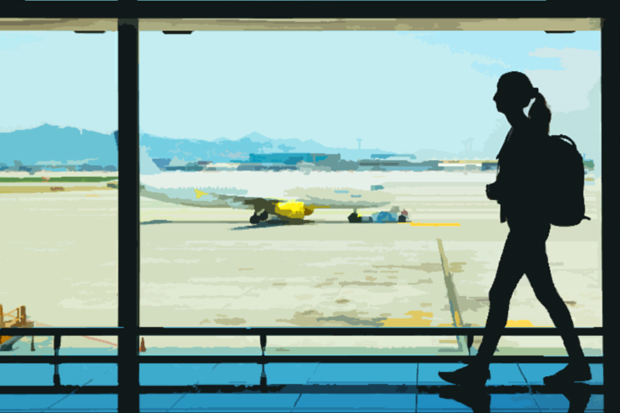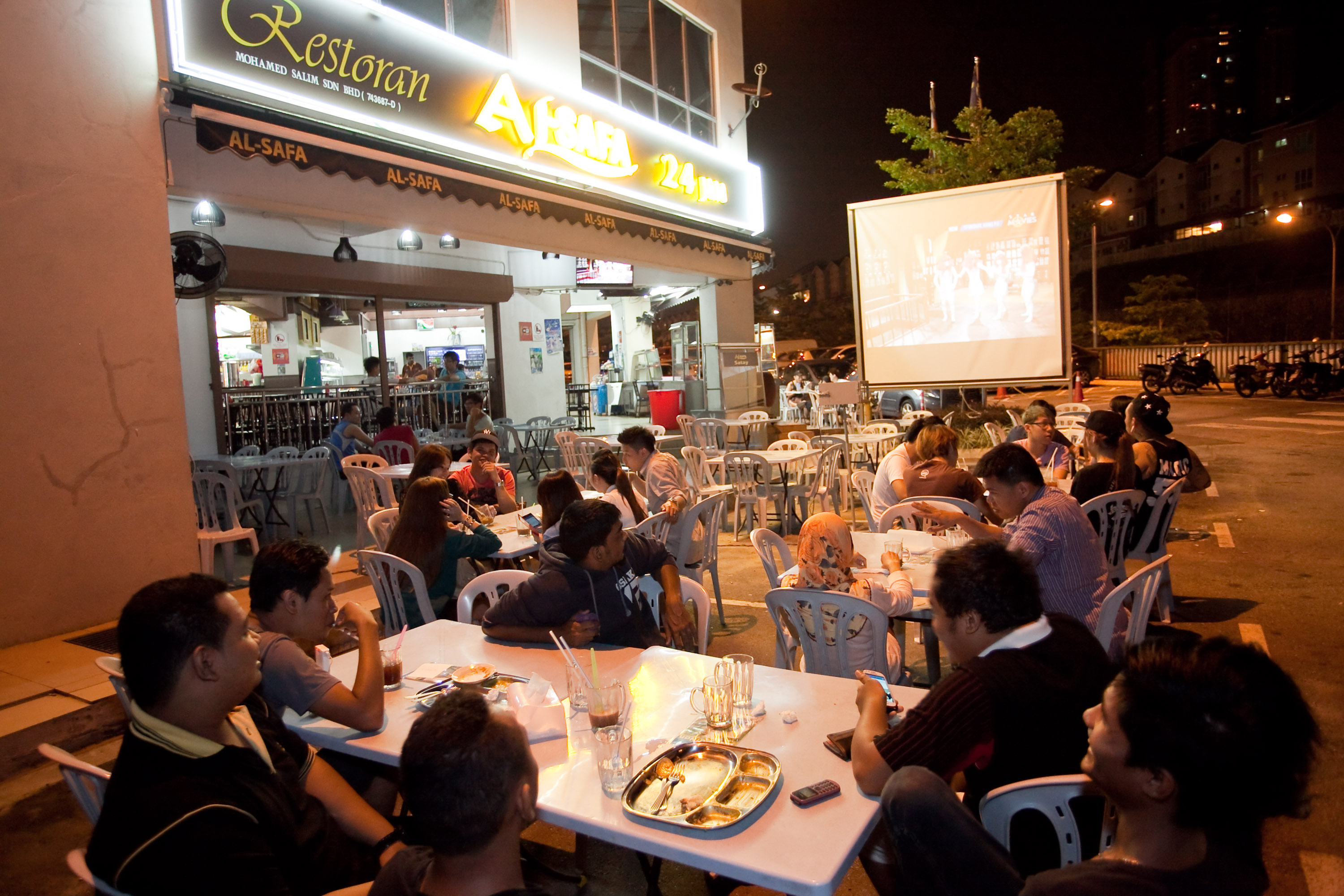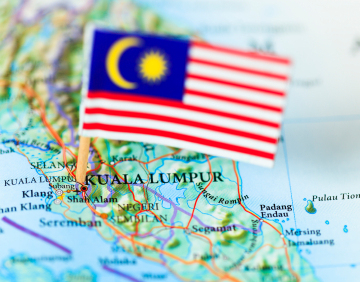#HowToLoveMalaysia: Does Emigrating Mean You Don't Love M'sia? Three Emigrants Tell All
We all have the one friend or family who has left Malaysia for "greener pastures". But is it always greener on the other side? For the fourth and final edition of #HowToLoveMalaysia, we talk to three born and bred Malaysians who have all left Malaysia for very different reasons. Note: All our interviewees have chosen to remain anonymous.
There are many reasons and circumstances as to why a Malaysian would choose to leave Malaysia. What does their decision to contribute their talents to a foreign country say about their love for our homeland?
Jon, Dr. Dan and Lili have studied, work and lived overseas for over 10 years, all for different reasons. This is their story:
56-year-old Jon (not his real name) is a family man who lives in Melbourne with his wife and three sons. He has retired from his corporate life to dedicate his life to taking care of his autistic child. Jon first left Malaysia in 1977 for New Zealand for a degree course where he subsequently stayed on to work in the government audit firm for two years. He then returned to Malaysia for seven years to start a family. In 1988, Jon and his family migrated to Australia. They stayed there for five years and came home in 1992. After that, Jon was sent to work in Bangladesh for three years and the United Kingdom for five years. After his stint in UK, Jon and his family decided that Melbourne is where they would finally settle down and call home. Despite his long history of overseas work, Jon still retains his Malaysian passport.
Dr. Dan (not his real name), 31, had a happy childhood in Klang, Selangor, but has left Malaysia for Auckland, New Zealand. He left Malaysia as a teenager to pursue a medical degree in Auckland and stayed on to build a career there. The 31-year-old doctor has lived and worked in Auckland for 10 years now, and has even received a New Zealand permanent residency.
Lili (not her real name), 55, who is an accountant, has taken up an Australian citizenship. She grew up receiving a strict upbringing in convent schools in her hometown in Seremban. During the commencement of her Form Six education, Lili saw how the discrepancy in grades between a Malay and a non-Malay student affected their admittance to Science or Arts stream. She felt like a victim of partiality as her parents struggled to afford her school fees while her Malay schoolmates spent their scholarship allowance on expensive, new jeans. That was when Lili decided to pursue an overseas education where she felt she would have a fair playing field in society. She worked and studied in New Zealand for seven years and decided to return to Malaysia. However, she felt affected by the forces of discrimination again while she was job hunting here. Lili was disappointed to see job advertisements blatantly listing race as a criteria. "'Only Bumiputras need to apply' is a common feature," says Lili. Ten years later when she and her husband were presented with a job transfer opportunity in Australia, they did not hesitate to pack their bags and leave.
Why did you choose to work and live overseas?
Dr. Dan: I am just one of the many Malaysians who were fortunate enough to have MBF (Mak Bapak Finance) to pursue a medical degree outside of Malaysia. I studied in Auckland and continued working here as it was the path of least resistance. Auckland has one of the best work life balances in the world, but I do hope to return to Malaysia one day.
Jon: The main reason why my wife and I left England and went to Australia instead of coming back to Malaysia is because of my youngest son’s medical condition. He is autistic and the basic facilities available in Malaysia are very inadequate to meet his needs. There is also the issue of my two older children who were educated in UK for over 7 years. It would have been hard for them to assimilate back into the Malaysian education system as their Bahasa Malaysia mastery is so far behind.
Lili: I did not like the discrimination found in job opportunities in this multiracial country. I was born here, grew up here and yet was not accorded equal civil rights due as a Malaysian citizen. My husband and I knew very well that the future of Malaysia does not belong to us or our children to come. We took the step to migrate to Australia where we were extended the same benefits and privilege as the locals even though we were new emigrants. We also noticed that the education level in Malaysia, especially the level of English proficiency in local government schools, had dropped dramatically. For the sake of the future generation, I needed to ensure that my children are given a fair go based on their merits and not on their race.
Tell us 3 things you miss most, and 3 things you don’t miss about Malaysia
Dr. Dan: I miss mamak, my friends and my family. I don't miss the traffic, crowds, nor politics.
Lili: I miss the warmth and love of family members, Chinese culture, and the festivals here. What I do not miss is partiality and discrimination, snatch thieves, and MAS (Mana Ada System!!).
Jon: I miss family ties, friends and Malaysian food. I don't miss the racial politics, the humidity, and the perception that Malaysia is becoming very unsafe with reports of snatch thefts, burglaries and robberies.
Many Malaysians have the perception that the grass is greener on the other side. Is this true?
Jon: All countries have its pro and cons. It is a matter of deciding whether the pros outweigh the cons. I agree that many Malaysians have the perception that western countries are far better than our own, but I also know of people who have migrated to Australia, struggled, and questioned whether they made the right decision to emigrate. At the same time, there are also a lot of Malaysians who migrated simply because they want to give their children better education opportunities.
Dr. Dan: Yes. The grass in New Zealand is greener than in Malaysia. In fact, it is very green. Very, very green indeed.
Lili: Yes. There will always be pro and cons when you emigrate but after you had passed through those years of hardship and set up home, you will be more settled. The real issue is whether the sacrifice you've made to emigrate is worth it.
Does choosing to contribute your talents to a different country means you are unpatriotic? How do you express your love for Malaysia from where you are based?
Dr. Dan: No, I don’t think my choosing to work overseas has anything to do with patriotism. I think if anything, my decision is a patriotic one as I plan to return home with foreign experience. so I can contribute to the dissemination and development of new knowledge in Malaysia.
Jon: It may be partially through that my patriotism is not as strong as it could be, but I still love Malaysia even though I have Australian citizenship. I still support Malaysia in sporting events, I still follow Malaysian news, and I always keep up to date on things that are happening in the country.
Lili: Patriotism, like any relationship should be a two way traffic. If a husband does not love his wife, how can you expect the wife to reciprocate the feeling? I was a citizen but was never treated as a citizen. As such, I do not feel any sense of patriotism towards Malaysia. Whereas in Australia, my family and I were given the same benefits and entitlements as all permanent residences and Australian citizens should. That's why I have more love and a sense of patriotism towards Australia and I gladly call Australia home.
What is one thing you want Malaysians to know?
Lili: I could wish that every non-Malay have the option to emigrate so that their children can be given a fair go at life’s future, but that is not possible. For those who stayed behind to fight against the corruption, inefficiency of the government machinery, lack of freedom of expression, and discrimination, I do admire your courage. I admire the late Karpal Singh, Lim Kit Siang and their sons. Keep up the good work and I am cheering you from afar. To those who can afford to give their children an overseas education, good for you!
Jon: Malaysians should not think that those who migrated overseas are not patriotic as there are many reasons behind one’s decision. After all, starting a new life overseas is never easy.
Dr. Dan: You can take the Klang boy out of Klang, but you can never take the Klang out of the boy.



